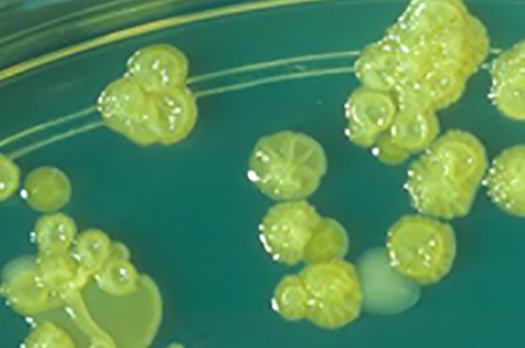In 2022, there was a prolonged infant formula shortage in the US. The reasons behind this shortage were complex, and were thought to include supply chain limitations and regulations restricting import of baby formula from other countries (read more here and here). One of the initial events that led to the formula shortage was contamination of formula produced by one manufacturer with a foodborne pathogen, Cronobacter sakazakii. C. sakazakii is a Gram-negative bacterial pathogen that can cause severe illness and death in susceptible individuals. This pathogen is more osmotolerant than some of the other foodborne pathogens we study, which allows it to survive in the powdered milk used to make formula (read more here). The formula-linked outbreak led to four illnesses and two deaths among infants who had consumed contaminated formula. The plant which manufactured the contaminated formula issued a voluntary recall. Subsequent investigation by the FDA documented many sites within the manufacturing plant that were contaminated with C. sakazakii. This story is just one example of how understanding key principles of Food Microbiology can play an important role in maintaining a safe food chain.
Image source: https://www.cdc.gov/cronobacter/investigation.html

